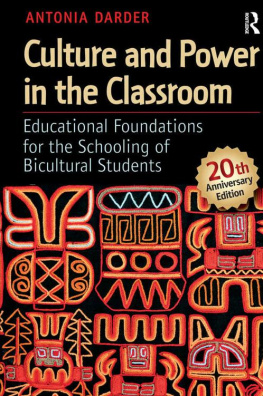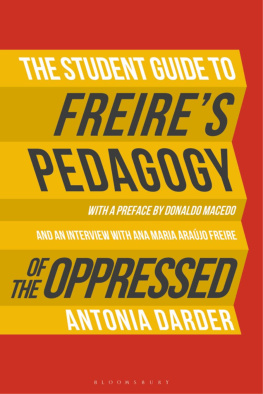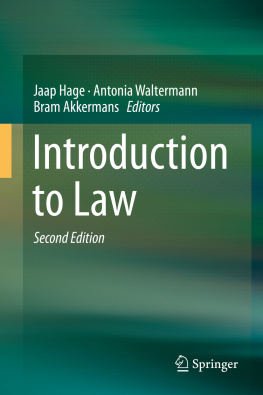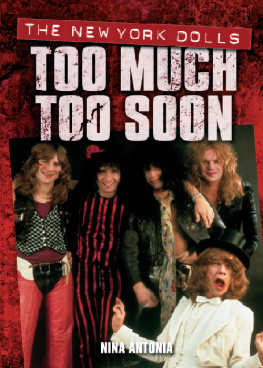Thank you for buying this ebook, published by NYU Press.
Sign up for our e-newsletters to receive information about forthcoming books, special discounts, and more!
Sign Up!
About NYU Press
A publisher of original scholarship since its founding in 1916, New York University Press Produces more than 100 new books each year, with a backlist of 3,000 titles in print. Working across the humanities and social sciences, NYU Press has award-winning lists in sociology, law, cultural and American studies, religion, American history, anthropology, politics, criminology, media and communication, literary studies, and psychology.
After Race
After Race
Racism after Multiculturalism
Antonia Darder and
Rodolfo D. Torres
NEW YORK UNIVERSITY PRESS
New York and London
www.nyupress.org
2004 by New York University
All rights reserved
Library of Congress Cataloging-in-Publication Data
Darder, Antonia.
After race : racism after multiculturalism /
Antonia Darder and Rodolfo D. Torres.
p. cm.
Includes bibliographical references and index.
ISBN 081478268X (cloth : alk. paper)
ISBN 0814782698 (pbk. : alk. paper)
1. RaceSocial aspects. 2. Racism. 3. Marginality, Social.
4. RacismUnited States. 5. MinoritiesUnited States.
6. United StatesRace relations. I. Torres, Rodolfo D., 1949
II. Title.
HT1521.D37 2004
305.80973dc22 2004005810
New York University Press books are printed on acid-free paper,
and their binding materials are chosen for strength and durability.
Manufactured in the United States of America
c 10 9 8 7 6 5 4 3 2 1
p 10 9 8 7 6 5 4 3 2 1
We dedicate this book to our mothers,
Mary Najera and Carmen Francisca Aguilo Rosario, whose lives of suffering and poverty fueled our impetus to strugglethough their stories could never illuminate the complex truth of the savage structures of inequality that ruled our lives on the streets of East Los Angeles. For this, we turned to Marx.
Contents
4 Manufacturing Destinies:
The Racialized Discourse of High-Stakes Testing
5 Whats So Critical about Critical Race Theory?
A Conceptual Interrogation
6 Mapping Latino Studies:
Critical Reflections on Class and Social Theory
Acknowledgments
We wish to express our appreciation to our colleagues and students for the insights and support they have offered us in the development of our work. In particular, we thank Robert Miles for his friendship and mentorship, as well as his contributions to the intellectual tradition he has worked to forge during these perilous times. Mil gracias to Mario Barrera, Victor Valle, Maulana Karenga, John Solomos, Kevin Johnson, Lou Mirn, Suzanne Oboler, and David Roediger for their thoughtful and challenging responses to our ideas, as well as to Satnam Virdee for his cross-Atlantic input to this work. None of these fine individuals are to be held responsible for our errors and failures. In fact, several of our colleagues have expressed disagreement with our theoretical arguments, but, nevertheless, they agree on the need for this political and intellectual intervention. We remain open to continued conversations on this timely and important topic. A very special thanks to Nancy Christensen, Laura Galicia, and Joseph Feria-Galicia for their invaluable assistance in the preparation of this manuscript. And last, we thank our families for their patience and support through all the ups and downs of living with our creative angst.
After Race
An Introduction
The truth is that there are no races.... The evil that is done is done by the concept and byyet impossibleassumptions as to its application. What we miss through our obsession... is, simply, reality. (Appiah 1995, 75)
Over a century ago, W. E. B. Du Bois in The Souls of Black Folk proclaimed one of his most cited dictums: The problem of the 20th Century is the problem of the color line (1989, 10). In this book we echo his sentiment, but with a radical twist. The problem of the twenty-first century is the problem of racean ideology that has served well to successfully obscure and disguise class interests behind the smokescreen of multiculturalism, diversity, difference, and more recently, whiteness. Whether the terms of analysis are race, racial identity, race consciousness, or political race, the category of race and its many derivatives function as the lynchpin of racism, which forbids its objects to be other than members of a race (Fields 2001, 49). As Barbara Fields has noted with respect to African Americans,
Afro-Americans themselves have fought successively for different ways of naming themselves as people.... Each name, once accepted into the general public vocabulary, has simply become a variant word for Afro-Americans race. A sense of peoplehood, nationhood, or comradeship in struggle may be available to others; but, for persons of African descent, all reduces to race, a life sentence for them and their issue in perpetuity. (50)
To radically shift directions and speak against race, as Paul Gilroy (2000) suggests, or after race as we attempt to do here, is to uncompromisingly refuse to accept or legitimate any longer the perpetual racialized demarcations of raced (Guinier and Torres 2002) or problem (Du Bois 1989) populations. Our intention is to contest the notion that the color of a persons skin, and all it has historically come to signify within the sociological, political, or popular imagination, should continue to function as such. We seek to shatter dubious claims that essentialize the responses of populations, whether they exist as objects or subjects of racism; and by so doing, acknowledge the complexity of the world in which we negotiate our daily existence today.
To be clear, we are not arguing in the tradition of the color-blind conservatives or political pundits who would have us believe that the structures and practices that have formidably embedded racism as a way of life for centuries in the United States and around the world have been undone and that the problem of racism has been ameliorated. Our position, in fact, is diametrically opposed to this argument. Instead, the political force of our analysis is anchored in the centrality of race as an ideology and racism as a powerful, structuring, hegemonic force in the world today. We argue that we must disconnect from race as it has been constructed in the past, and contend fully with the impact of race as ideology on the lives of all peoplebut most importantly on the lives of those who have been enslaved, colonized, or marked for genocide in the course of world history.
Situating the Debate
We have arrived at this position after ten long years of debate and research into the extremely murky, contradictory, and disturbing literature in the field. During this time, a variety of questions have informed our work, questions that the reader will find repeatedly reflected or inferred in the collection of interpretive essays included in this book. Some of these questions include: How has the notion of race changed over time? What analytical value or utility does the concept of race have in our struggle against racism and economic inequality? What value do contemporary notions of race have in our efforts to dismantle the external material structures of oppression that sustain racialized inequalities? Should we jettison the concept of race but continue to study racism? Can racism exist without races? Does the concept of race have any real referent in the social world beyond its link to racism as an ideology? What is the relationship between changing class formations and racialized inequalities? What are the problematics of white supremacy arguments in the antiracist struggle for economic democracy? To what extent do retaining black-white dichotomous perceptions of race relations render other racialized populations invisible? Is the black-white paradigm of race relations able to grasp the new patterns of conflict or racialized inequalities within a changing political economy? What are the implications of questioning the race relations paradigm? How can we arrive at a more precise and specific concept with which to analyze both the historical and contemporary social realities and material conditions of racialized inequalities? What new strategies might help us dissolve the historical barriers that interfere with the establishment of antiracism solidarity across populations with quite different histories of integration into the U.S. body politic?













